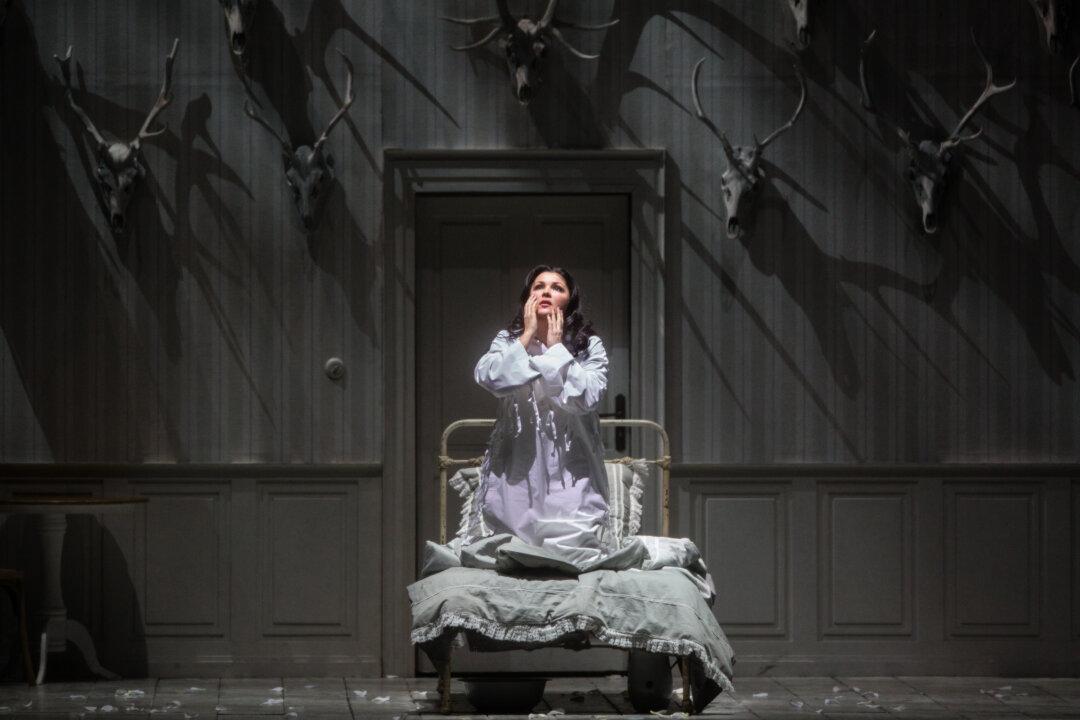NEW YORK—The Metropolitan Opera has a new production, pairing Tchaikovsky’s “Iolanta” with Bartok’s “Bluebeard’s Castle.” A co-production with the Polish National Opera, directed by Mariusz Trelinski, the two pieces are linked visually and benefit from starring two of the most dynamic singers on the international scene, Anna Netrebko in the Tchaikovsky opera and Nadja Michael in the Bartok, as well as Valery Gergiev leading the Met’s superb orchestra.
“Iolanta” was first presented in St. Petersburg in 1892 as the opening piece on a double bill with “The Nutcracker.” The ballet has become a seasonal favorite but the opera is not well known outside of Russia. The new production marks its debut at the Met. This oversight is surprising since the opera is melodic and moving, especially with this cast.






